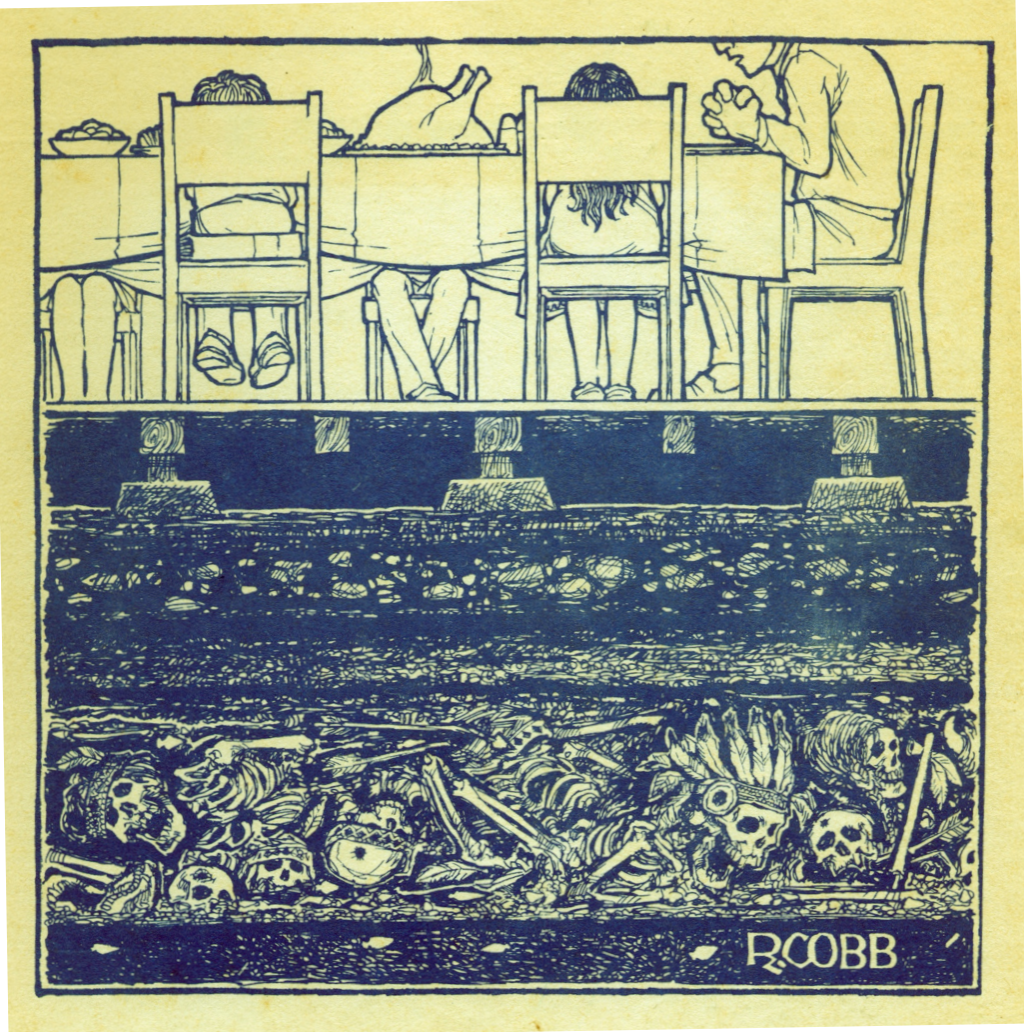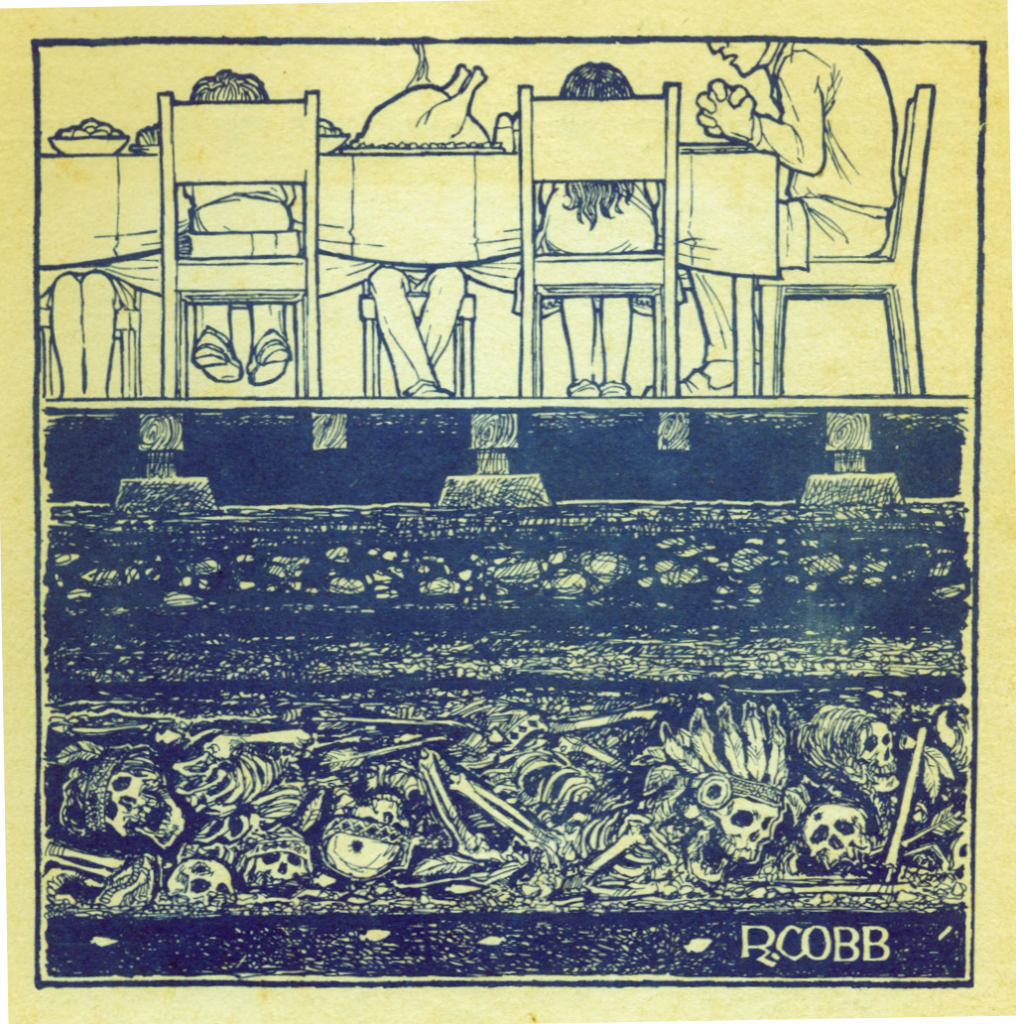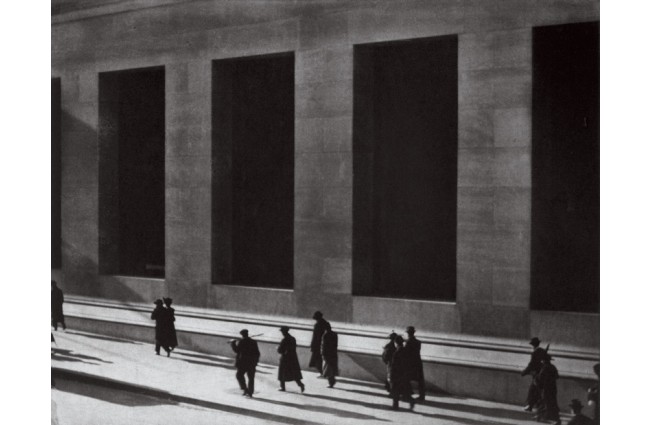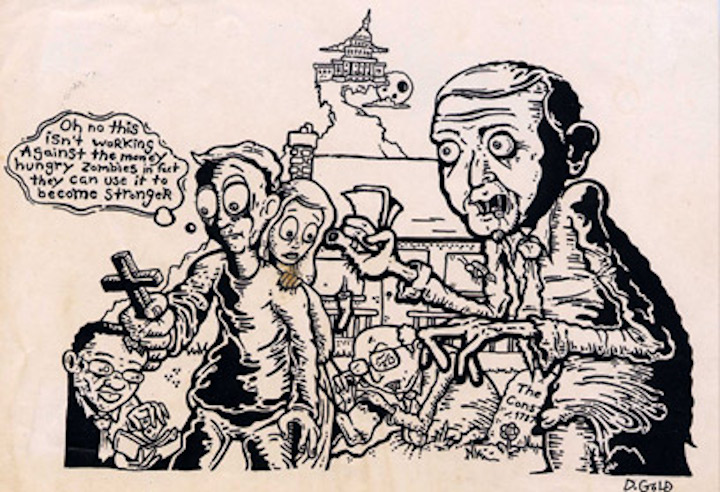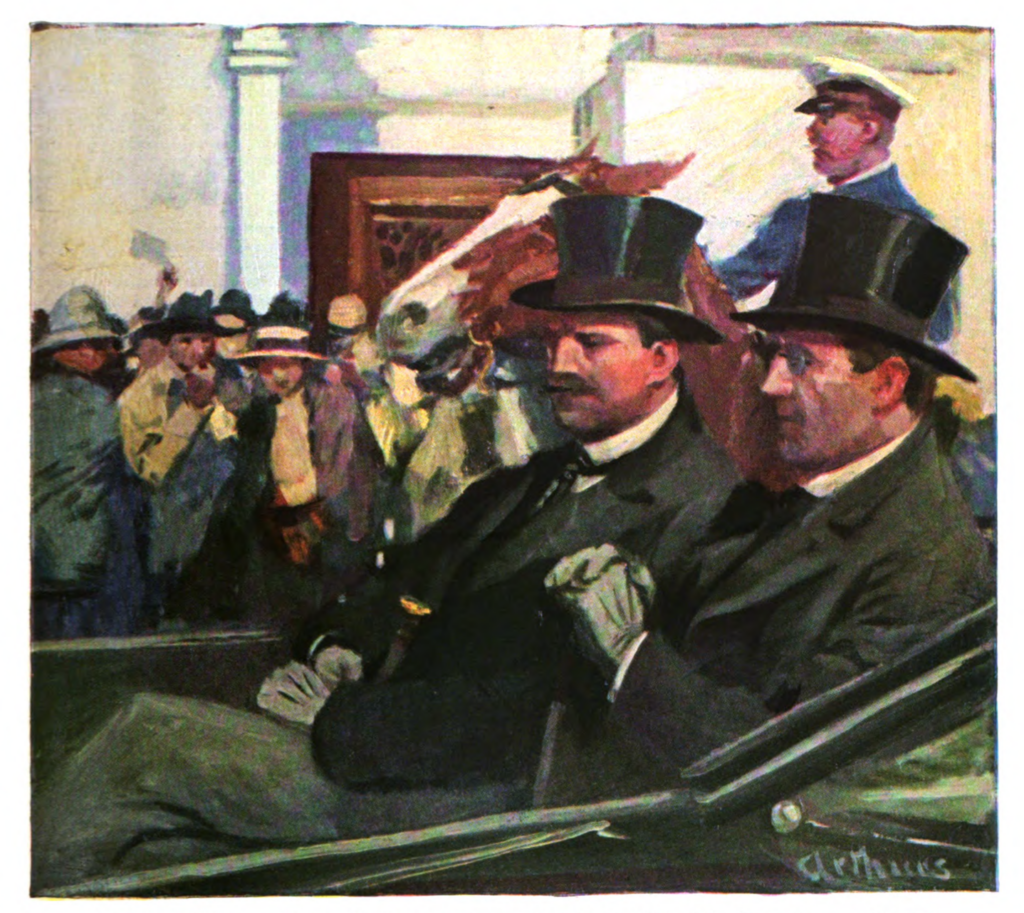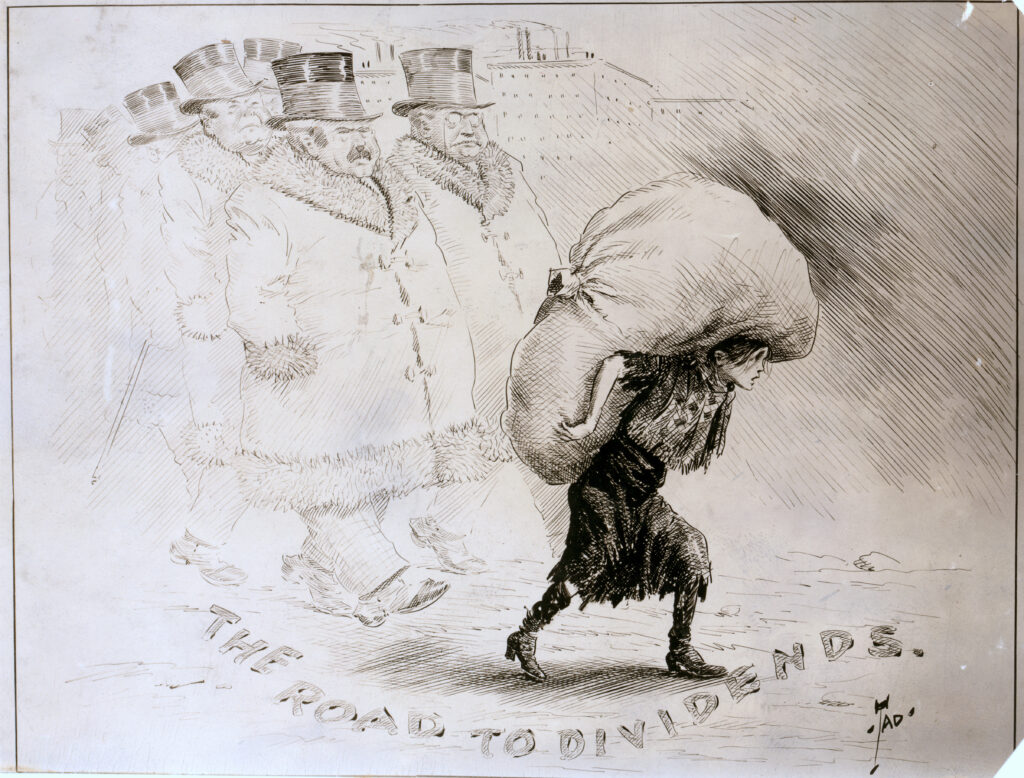For people deeply indoctrinated, like USians, it is difficult to fight your way from the Right to the Left, or out of the Right, without the emotional energy and restorative peace of works of art. Some of us only make it out of families, or churches, or schools, because we believed in rock & roll or Jane Eyre or Thelma&Louise – because we’d been told we couldn’t believe in ourselves.
But what happens when you want to end war and feed hungry people? What invariably happens is that the people you know and thought were decent suddenly pepper you with endless antagonistic questions, all meaning that it cannot or should not be done, and it’s none of your business, anyway, and get off your high horse of advocating for equality.
How will it be paid for? Isn’t capitalism going to provide better than anything else? What is the history of trying things one way, versus another way, or a third or 103rd way? Do you have a degree in this topic?
So to back up your ideals that everyone should have a place to sleep and something to eat, you delve into political theories, read (about) Marx and Keynes, learn things like how much is spent on wars and why those wars happen and who literally makes bank from them (from us), instead of spending our own money on our own needs. And now when the peppered questions come, you will be ready with the facts, the histories, the successes and failures – and convince them of absolutely nothing. You won’t even plant a seed or shine a light for them – they have no eye to see, and this is better for them, they know, because, writes our author Thurman Arnold,
“In the country of the blind the man who can see is always classed as a radical or a cynic.”
And those are bad things to be.
For while many of our minds, and hearts, can be swayed by compassion, understanding, even love – apparently (and this is not sarcasm) most people’s hearts and minds absolutely detest facts and information, and are totally controlled by feelings that are generated by rituals and ceremonies disguised as “the way it is.”
In our time, this does not just mean maga fascists. As MLK said, it is the “moderates” who will stop our train.
In 1938, Yale professor Thurman Arnold sought to explain why reasons just aren’t enough to improve society and convince the moderates in his book The Folklore of Capitalism:
“It may be asserted as a principle of human organization that when new types of social organization are required, respectable, well-thought-of, and conservative people are unable to take part in them. Their moral and economic prejudices, their desire for the approval of other members of the group, compel them to oppose any form of organization which does not fit into the picture of society as they have known it in the past. This principle is on the one hand the balance wheel of social organization and on the other hand its greatest element of rigidity.”
He further explains why these habits are so hard, perhaps impossible, to break:
“But how do men actually choose … creeds? The answer is that they do not choose them. Men become bound by loyalties and enthusiasms to existing organizations. If they are successful in obtaining prestige and security from these organizations, they come to regard them as the ultimate in spiritual and moral perfection. This attitude is necessary for the morale of these institutions.”
When called to account for their crimes, as they were briefly and timidly in the 1930s, the rich have the same milquetoast insincere cynical answers meant to fool (or give cover) to every Susan Collins of every generation:
“If these questions are answered in terms of the prevailing folklore, the average man will answer that they were bad bankers but that bankers have ‘learned their lesson’ and are different today. True the Government is playing a very large part in the distribution of goods, but this is an abnormal situation. It will have to stop because of governmental waste and extravagance, and then a purified private business will collect money from the public and give it real security and not act as it did in the past. All bankers need today is more confidence. They will get that confidence when the Government stops interfering with their business. Bankers will not abuse that confidence anymore.”
One thinks of that brilliant little movie, The Butcher Boy, and his lifelong pursuit of being “not a bad bastard any more.” With more success than a banker, of course.
Arnold explains, perhaps without meaning to, the evangelical church that has so turned its back on the teachings of its lord and savior that church members claim Jesus’ message is too “weak” and “liberal”; and explains the humiliation of the church, relying on the same “good news” symbols to share not freedom from sin, but freedom to sin, and block up their ears. How else turn a message from helping “the least of these,” to kicking dirt in their faces for billionaires?:
“When symbols or beliefs have no relation to what men see before them, regularity of doctrine becomes of paramount importance. Since observations in such a situation create only paralyzing doubt, men must drown their observations in doctrine and philosophy. Therefore, ceremonies grow in number and mystical literature increases by leaps and bounds, become more and more abstract as it grows.”
See, for example, the desperate attempt to claim that “the eye of the needle” is a street in Israel, which was narrow but not too narrow for a rich man and his camel if he walked the street carefully. It’s not that people are actually fooled by this – it just gives an “intellectual” cover and defense for the expression of capitalist feelings that Jesus would oppose with a whip in the temple. But Unreason does not dissuade them – it makes them stronger:
“The arguments often appeared nonsensical, but it should be remembered that for the purpose of binding organizations together nothing makes as much sense as nonsense, and hence nonsense always wins. If the reader does not believe this, let him substitute for an impressive and moving ritual in any organization to which he belongs, a series of factual and practical observations. If he does, he will see the organization crumbling for lack of the emotional drive which comes only from ceremony. Tears and parades, not factual psychological discussion, are the moving forces of the world in which we happen to live; and this is true even for psychologists.”
Predicting the jingo-patriotism of Bush, and the word-salad of hate from TFG, Arnold quotes Herbert Finer:
“To be grandly vague is the shortest route to power; for a meaningless noise is that which divides us the least.”
People will sacrifice their own lives and comforts and needs, for the sake of the feeling:
“This folklore which denied that labor had a moral claim on an industrial organization produced most interesting results. The textile industry in New England had a supply of docile labor which it exploited for years. Then it took the so-called ‘capital’ thus accumulated and invested it in the South where labor was still cheaper. This enriched a few trust companies in Boston but left whole communities impoverished. Nevertheless, under the creed of rugged individualism, primitive-minded conservatives of New England fought to the bitter end to preserve this manner of doing things.”
“The origin of this way of thinking about organization is the result of a pioneer civilization in which the prevailing ideal was that of the freedom and dignity of the individual engaged in the accumulation of wealth. The independence of the free man from central authority was the slogan for which men fought and died. This free man was a trader, who got ahead by accumulating money. There was something very sacred in the nineteenth-century conception of this activity.”

TITLE: A little spinner in Globe Cotton Mill. Augusta, Ga. The overseer admitted she was regularly employed.
Location: Augusta, Georgia.
Arnold articulates the Left’s need to appeal to feeling, and the failures of not doing so, even if it’s maddening:
“In no struggle between organizations, under any form of government, has logic triumphed because it was on the one side or the other. Logical persons usually succeed in alienating all their followers sooner or later because they are always pointing out contradictions in ideals which are emotionally necessary.”
Logical persons find meaningful accurate answers, but,
“The more learned resolve that conflict by subscribing to learned institutions which are supposed to figure it out for them and thus enable them to forget it. The more naive simply join the Church and let their religion take care of the matter for them.”
This is how Arnold describes the “testimony of large employers before the Senate committee on the wages and hours bill. These employers were vaguely conscious of the cruelty of low wages.” Do our billionaires today know this? Or is their insulation complete?
And even though we’ve had centuries of examples to prove it, perhaps the absolute shallow craven emptiness of TFG can shatter some sense into us, through feeling, of course:
“Fees and patronage in industrial organization … are protected by two myths which work together as follows: (1) Nothing that great American businessmen do with their own property can be other than helpful. (2) Great organizations are in fact American businessmen. It is the combination of these two myths that creates an anarchy which makes ethical conduct on the part of socially minded businessmen almost impossible.”
This mythical belief in the rich – that they got rich based on merit, hard work, ingenuity – so obviously not true (see TFG) – helped to bamboozle USians into the insane thinking that has led to people dying because they cannot afford to pay rich corporations for insulin, or rent.
“People grew to distrust service rendered them by that type of organization called the State, because they felt they would be ‘taxed’ to pay for it. They preferred the services of great industrial organizations [corporations] because they did not consider their contributions to such corporations as taxation. Men in America were so conditioned that they felt differently about taxes and about prices. The former was an involuntary taking; the latter a voluntary giving. Prices were something a person could pay or not pay as he chose.”
Or the insane ongoing beliefs (in action) about climate catastrophe:
“If government conserves our soil from floods and erosion in order to bequeath to posterity a more productive country, our children will be impoverished thereby and have to pay for it through the nose.”
And that would be bad. Better not to have a world where they won’t have to pay for it through the nose.
Unless a New Deal is on the horizon, the center will not hold, and the USA will be as supine as Russia under Putin, condemned to never “think realistically about their government.”
And to create this New Deal, we need our own folklore: “successful organization requires a folklore which, instead of hampering it in meeting its practical problems, allows it freedom to experiment.”
We need to experiment with things like Universal Basic Income, Maximum Income, etc., the same as any private home or business does – and with the same leeway:
“Organizations, like any army, are necessarily inefficient when they are formed. Yet the standards of the day require that a governmental organization should be mature when it is born. Standards for private organization are more practical. They recognize that the United States Steel Corporation today is a gradual development from complete anarchy. They realize that a large number of automobile companies had to rise and fall before the present highly effective combinations appeared. This thinking is possible through the symbolism of private property. The notion is that nobody ‘pays’ for the mistakes of private organizations, except the investors, the laborers, and the purchasers, and that their loss is not a tax but is something due to their own fault for investing in, working for, and purchasing from, the particular organizations. In the case of governmental organization, every mistake is a tax on posterity.”
And we need to experiment with ideas of freedom, even if just to convince ourselves and others that we want it, and can get it.
To accomplish these goals, we suggest this short list of Folklore Heroes for us – not for them:
Rachel Corrie:
“We should be inspired by people … who show that human beings can be kind, brave, generous, beautiful, strong – even in the most difficult circumstances.”
Aaron Bushnell:
“Many of us like to ask ourselves, ‘What would I do if I was alive during slavery? Or the Jim Crow South? Or apartheid? What would I do if my country was committing genocide?’ The answer is, you’re doing it. Right now.”
Martin Luther King, Jr:
“The bombs in Vietnam explode at home. The security we profess to seek in foreign ventures we will lose in our decaying cities.”
Harriet Tubman:
“There are two things I got a right to, and these are, Death or Liberty – one or the other I mean to have. No one will take me back alive; I shall fight for my liberty, and when the time has come for me to go, the Lord will let them, kill me.”
Gabriel Prosser:
“Death or Liberty.”
Emma Goldman:
“The true artistic genius, who will not cater to accepted notions, who exercises originality, and strives to be true to life, leads an obscure and wretched existence. His work may some day become the fad of the mob, but not until his heart’s blood has been exhausted; not until the pathfinder has ceased to be, and a throng of an idealless and visionless mob has done to death the heritage of the master.”
Chelsea Manning:
“Sometimes you have to pay a heavy price to live in a free society.”
Toni Morrison:
“There is no time for despair, no place for self-pity, no need for silence, no room for fear. We speak, we write, we do language. That is how civilizations heal.”
Leonard Peltier:
“When you have a voice, use it to speak up for those who are silenced. When you have strength, use it to lift up those who are oppressed.”
Norman Morrisson:
Anna Morrison: “Norman Morrison has given his life today to express his concern over the great loss of life and human suffering by the war in Vietnam. He felt that all citizens must speak their true convictions about our country’s actions.”
Leah-Lynne Plante:
“Strive To Survive Causing Least Suffering Possible.” – “They want us to feel isolated, alone, and scared. … When they try to mercilessly gut communities, we do not scatter, we grow stronger, we thrive.”
Reality Winner:
Hero forever.
John Henry:
A steel driving human.
Amy Goodman:
“Go to where the silence is and break the sound barrier.”
Tom Joad:
“Wherever there’s a fight so hungry people can eat, I’ll be there. Wherever there’s a cop beatin’ up a guy, I’ll be there.”
